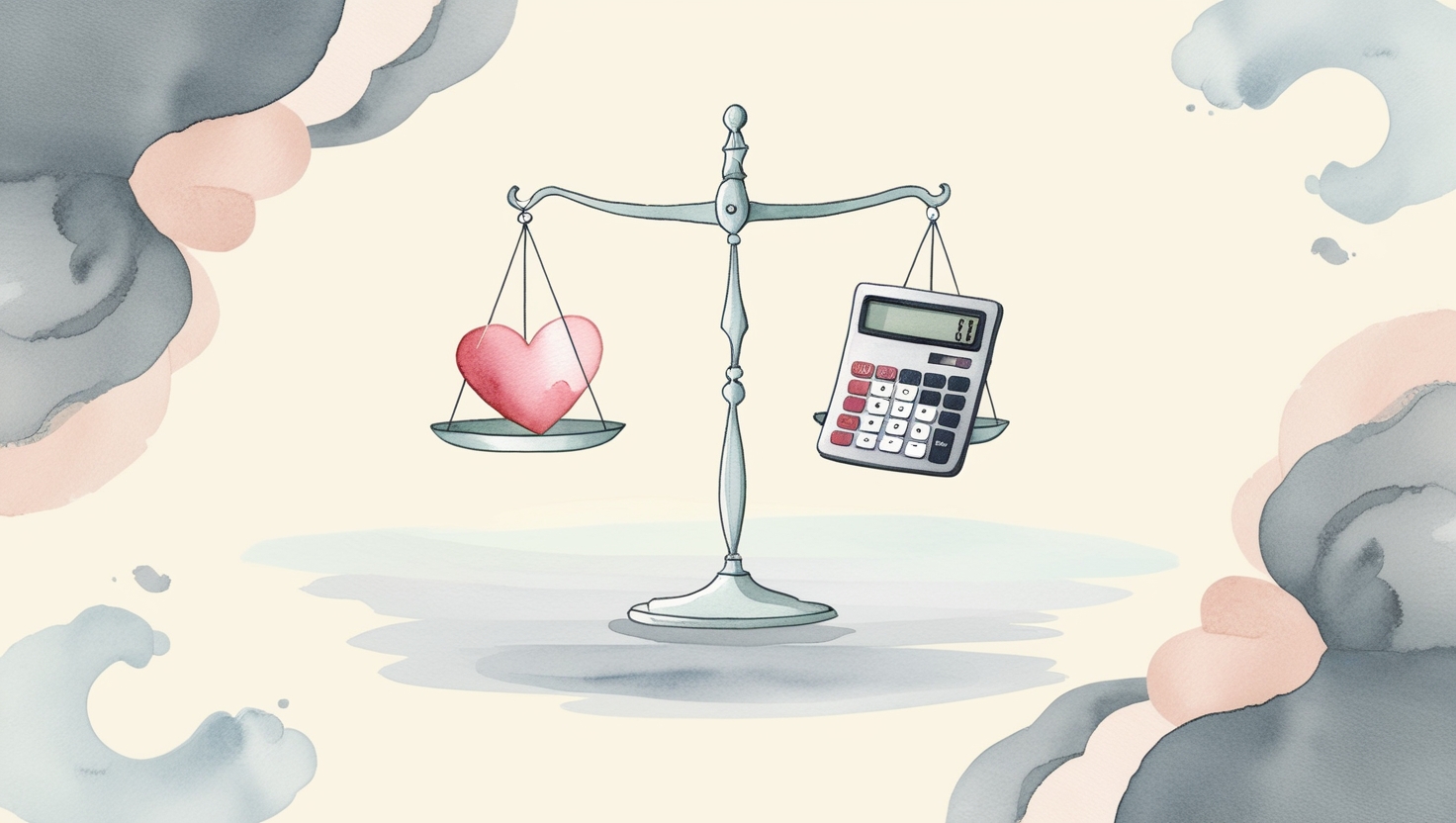「価値の基準が違う|自分にピッタリな家を選ぶ際のリアルな考慮事項」
〜前回のつづき〜
●いい家に住みたい理由、考えたことありますか?~あなたにとって“いい家”とは?~(つづき)

だから当然誰に聞くかにもよります。
不動産屋に聞けば
買って欲しいから

「今後大きなイベントがあるから
上がりますよ!」
とか

「毎月家賃分払えば
自分のものですよ!」
とか
セールストークを
繰り広げる訳です。
こんなのは
いい加減なものです。
今後の値段なんて
誰もわからない訳です。
住宅メーカーに聞けば

「そりゃ買った方がいいですよ!」
と言うし
引っ越し族
(=引っ越しまくる人達)に聞けば

「賃貸の方が絶対にいい!」
と言うし
マイホーム買って満足してる
幸せ満点の夫婦に聞けば

「絶対にマイホーム買った方がいいよ!」

「もったいないよー」
と言うし
離婚した夫婦に言えば

「家なんていらなかったなー」
と言うかもしれない。
ではなぜ
みんな言う事が違うのかと言えば
人によって正解が違う。
話してる価値の基準が違うからです。
前提条件が違うからです。
なので大切なのは
・自分がどう生きたいか
・どんな暮らしがしたいのか
これが大切だと
今までもお話ししてきました。
何をするにしても
この大きな指針が大事な訳ですよね。
そのためにどんな家が必要なのか?
お金の損得だけ考えて我慢して

「こうした方が得だから!」
と言って

「我慢がまんガマン・・・」
と言ってずっと今を我慢して
寂しい思いをするというのも
微妙だと思うし
あまり良くないと思うし
人生が充実しない。
でも感情で買って
やはり家って
大きな負債を背負うので
感情で買って
後で後悔するというのも
あまり良くない。
すごく後で
困る事になりますよね。
●数字と感情を分けると見えてくる~賢い住まい選びの本質~

持ち家派V.S.賃貸派論争をして
感情と理屈をぶつけても
いつまでも決着はつきません。
いつもお話ししている通り
感情を入れてはダメという事ではなく
感情と理屈をぶつけても
話は終わらないので

数字と感情は分けて考えましょう。
そっちの方が効率がいいですよね?
という事なんです。
・マイホーム派
・賃貸派
感情で話すと色々有ると思うので
今日はあくまで
・数字の損得の話
・リスクの面
そういうことをテーマにしたい。
その上で
価値観は各家庭で考えてもらえれば
よろしいかと思います。
そのような事を前提にしていると
考えてもらえるとよろしいかと思います。
大体こういう様な話をすると

「マイホームはこうだから云々」
というような感情論でぶつけてくる人がいる。
わかるんですけど
今はその話をしている訳ではない。
ちょっとそこは
置いておいてもらって
お金の意味での損得を考えましょう。
数字で考えていきましょう
という事です。
〜〜〜つづく〜〜〜
Special Thanks college president Ryo.

●おまけ
≪≪Chat-GPTくんによる要約→perplexityちゃんによる文章まとめ≫≫
賃貸と持ち家の選択は、単純に金銭的な損得だけで判断することはできません。どちらが得かは、個人の価値観やライフスタイルによって大きく異なります。例えば、不動産業者や住宅メーカーは持ち家を推し進める傾向がありますが、引っ越しを繰り返す人々は賃貸を推奨することがあります。また、幸せな夫婦は持ち家を勧める一方で、離婚した夫婦は持ち家を後悔することもあります。
このように、立場や状況によって意見が分かれる理由は、各人の価値基準や前提条件が異なるからです。したがって、自分がどう生きたいか、どんな暮らしがしたいのかを明確にすることが重要です。この指針に基づいて、必要な住まいを選ぶべきです。
また、住まい選びにおいては、単に金銭的な損得だけを考えて我慢し続けることも、感情だけで大きな負債を背負うことも避けるべきです。どちらも人生の充実を損なう可能性があります。そこで、数字と感情を分けて考えることが賢明です。具体的には、数字的な損得やリスクを客観的に分析し、その上で個人の価値観に基づいて判断することが推奨されます。
このように、住まい選びは単なる物件の選択ではなく、自分のライフスタイルや価値観に合った選択をしながら、バランスの取れた判断を下すことが重要です。
Citations:
[1] https://note.com/kogizou/n/nab207cd32617
[2] https://bukken.aidagroup.co.jp/column/48/
[3] https://www.homes.co.jp/cont/press/buy/buy_00354/
[4] https://www.cruise-company.co.jp/column/rentvsowner
[5] https://business.nikkei.com/atcl/gen/19/00247/022200004/
[6] https://www.k-sankyo.jp/blog/7423/
[7] https://suumo.jp/article/oyakudachi/oyaku/sumai_nyumon/hikaku/mochiie_chintai/
≪≪Chat-GPTくんによる英訳≫≫
~Continuation from the previous discussion~
【Why do you want to live in a good house? Have you ever thought about it? What does a “good house” mean to you? (Continued)】
Of course, it depends on who you ask.
If you ask a realtor, they’ll tell you things like, “There’s a big event coming up, so prices are going to rise!” or “If you pay the monthly rent, it’s yours!”
These are just sales pitches.
Such statements are unreliable.
Nobody knows what the prices will be in the future.
If you ask a home builder, they’ll say, “Of course, buying is the better option!”
If you ask someone who moves around a lot, they’ll say, “Renting is definitely better!”
If you ask a couple who’s happy with their home, they’ll say, “You should definitely buy a house! Don’t miss out!”
But if you ask a divorced couple, they might say, “I never needed a house.”
Why do people say different things? Because the right answer is different for everyone.
The value system of the conversation is different. The assumptions are different.
So what’s important is:
– How do you want to live?
– What kind of life do you want to have?
This is the key point I’ve been talking about all along.
No matter what you do, having this big guiding principle is important.
So, what kind of house do you need for that?
If you only think about financial gain and decide to “endure” and say, “This is the smarter choice,” then you’ll spend your time constantly waiting, feeling lonely and unsatisfied. I don’t think that’s ideal, and it won’t make your life fulfilling.
However, if you buy a house emotionally and end up shouldering a huge debt, later regretting it, that’s also not a good situation.
You’ll find yourself in a really tough spot later on.
【The Essence of Smart Housing Choices: Separating Numbers from Emotions】
In the ongoing debate between owning a home vs. renting, trying to mix emotions and logic will never lead to a clear conclusion.
As I always say, it’s not that emotions should be excluded, but when you mix emotions and logic, the discussion will never end.
Let’s separate numbers and emotions and approach this more efficiently.
Whether you’re in favor of owning a home or renting, emotions will cloud the discussion. Today, let’s focus purely on:
– Financial pros and cons
– Risks involved
I want to discuss these aspects today.
From there, each family can consider their values and make their own decisions.
When you approach this with these assumptions in mind, you’ll be able to make better decisions.
Usually, when discussing these topics, some people throw in emotional arguments like, “But owning a home is like this…”
I understand that, but we’re not discussing that right now.
Let’s put that aside for now and focus on the financial implications and the pros and cons.
Let’s think about it from a numbers perspective.
Special Thanks OpenAI and Perplexity AI, Inc


